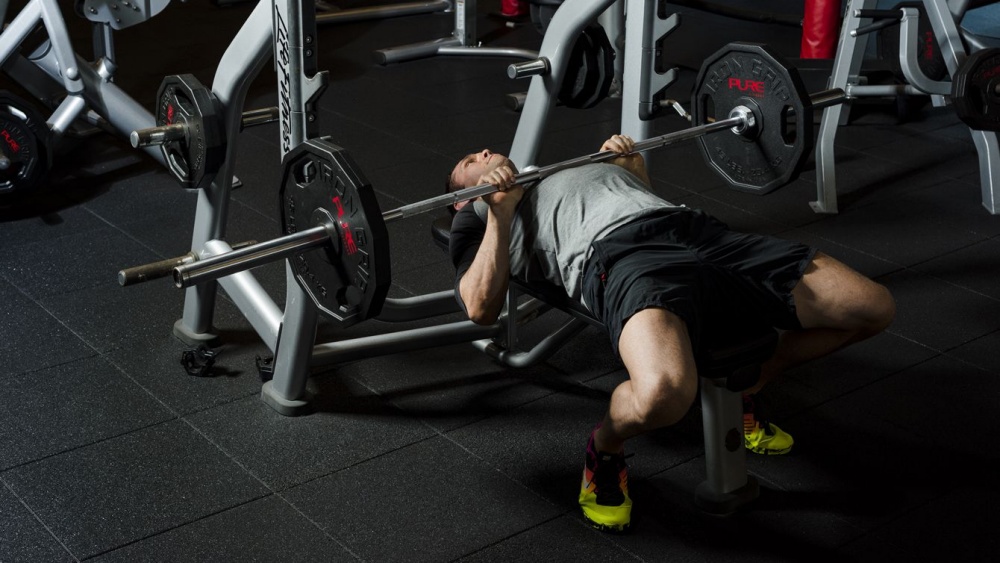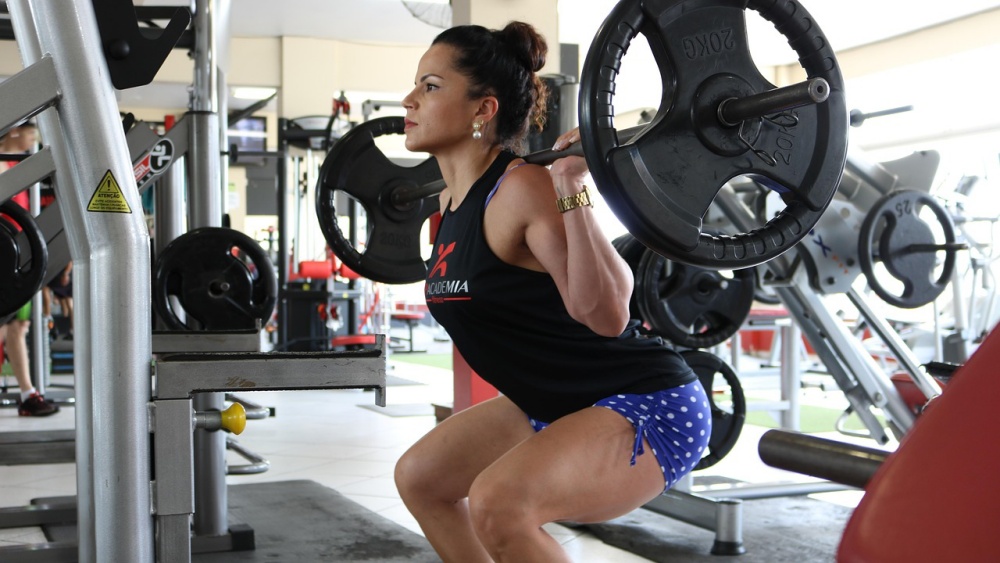When working out, building significant muscle mass takes dedication, hard work, and time, so you want to do everything possible to maintain your new physique. The last thing you want is for your newly gained muscle mass to gradually fade away. The good news is that maintaining muscle mass is a lot easier than increasing it. This article will discuss ten proven tips to help you keep your muscle gains intact regardless of what life throws at you.
It’s impossible to overstate the importance of protein regarding muscle mass. Protein is the building block of muscle tissues, and you won’t be able to keep your gains if you aren’t consistently getting enough protein.
Harvard Health suggests aiming for about 1.2 grams of protein for each kilogram of body weight to ensure your muscles have the building blocks to stay strong. Increase your protein intake to about 1.6 grams per kilogram of body weight if you’re on a calorie-restricted diet to lose fat.
Protein-rich foods include poultry, eggs, yogurt, lentils, pork, and beef. You should also consider using protein shakes, given the convenience they offer, along with as much as 50 grams of protein per serving.
Pro Tip: Spread your protein intake throughout the day to help with absorption and keep your muscles well-supplied.
2) Keep Up With Your Strength Training Routine

While taking one or two weeks off from your strength training routine a few times a year is okay if your body needs a break, you must include strength training in your routine regularly to maintain your muscle mass.
Research shows that maintaining your strength is vital for maintaining muscle mass. Your body is designed to make your life easier, so you gain muscle mass when you workout consistently. Your body becomes stronger over time, allowing your workouts to feel easier as it adapts. It distinguishes between elective training and the necessary effort for survival, making your metabolism more efficient in handling physical stress.
Strength training regularly reminds your body that you still need your muscles, preventing them from breaking down.
Fun Fact: Larger, stronger muscles aren’t the only benefit of strength training. It also helps to improve your bone density, mobility, and metabolism.
3) Take Recovery Seriously
Muscle maintenance requires more than just eating enough protein and going to the gym. How well you care for your body also impacts your ability to maintain muscle mass. Prioritize getting at least seven hours of sleep daily and space your workout days so your body has enough time to recover between workouts.
Your muscles get to repair themselves when you sleep, and getting adequate sleep regularly impacts your hormonal balance, energy levels, and recovery from each workout.
Quick Tip: Ensure you get between seven to nine hours of sleep every night for optimal muscle recovery.
4) Stay Hydrated
Staying adequately hydrated is vital for muscle function. Your muscles are made up of 70 percent water, and hydration plays a crucial role in maintaining optimal muscle function and boosting metabolism. Water not only helps remove toxins from the body but also supports the metabolic processes that promote muscle recovery and fat burning.
Aim to drink at least eight cups of water daily, especially if you’re active. Dehydration can slow down your metabolism, hinder performance in the gym, and cause fatigue or muscle cramps, so staying hydrated is essential for both your energy levels and your metabolic health.
Pro Tip: Drink water consistently throughout the day to stay hydrated. If you’re one of the many people who aren’t fans of plain water, add some fruit slices to your water to give it some flavor.
5) Track Your Calories
You need to be disciplined with your calories when looking to maintain muscle mass. Your body will break down muscle tissue for calories if you have a deficit. Consume too many calories, and layers of fat will start covering those muscles you’ve worked so hard to build.
Use one of the countless calorie trackers available today to figure out how much calorie your body needs and try as much as possible to stick to it. A small calorie deficit is okay if you want to lose fat, but anything drastic will force your body to break down muscle tissues.
Bonus Tip: Don’t skip out on carbs completely when trying to stick to your maintenance calories. Carbohydrates play a vital role in providing energy that powers your muscles. Instead, aim for a low-carb diet that includes lots of whole grains, vegetables, and fruits.
6) Avoid Excessive Cardio
Regularly performing cardiovascular exercises is excellent for your overall health, but too much cardio can be counterproductive when maintaining muscle mass is your primary goal. Try to limit your cardio sessions to no more than two to three 30-minute sessions weekly.
Activities like high-intensity interval training or signing up for martial arts like Muay Thai, Judo, or Brazilian Jiu-Jitsu offer all the cardio your body needs without overdoing things. What you don’t want to do is train like a marathon runner and expect to keep all your gains.
Quick Insight: Refuel with a snack containing protein and carbs after cardio sessions to jumpstart recovery.
7) Consider Supplements

Supplements don’t have any magical powers that make up for things if you aren’t doing any of the other things on our list. Supplements help you reach your fitness goals when you’re already doing the right things.
Supplements like creatine, protein powder, and branched-chain amino acids (BCAAs) have been proven to be beneficial for muscle maintenance. They also support recovery by reducing soreness after workouts.
Fun Fact: Supplements are designed to support what you’re already doing, such as performing strength and conditioning exercises three times a week and sticking to an appropriate diet.
8) Be Consistent

Consistency beats intensity when it comes to maintaining muscle mass. Create a workout routine and stick to it regardless of how busy life gets. Consistency keeps your muscles engaged, ensuring they get all the stimulation they need to remain strong.
Pro Tip: Always try to squeeze in a workout, no matter how hectic your schedule gets. Performing a few bodyweight exercises at home is better than doing nothing at all.
9) Find Ways To Manage Stress

While it might not be the first thing that crosses your mind when muscle maintenance is brought up, stress can impact your muscle mass. Stress causes your body to release cortisol, a hormone that leads to muscle tissue loss over time. Cortisol also leads to more fat building up in your midsection and lowers testosterone production.
Find ways to manage stress, like taking out your frustration on heavy bags at a Muay Thai class, scheduling more time to destress, or performing relaxing breathing techniques.
Fun Fact: Martial arts like Muay Thai, BJJ, and Boxing are great ways to lower stress. They provide stress relief via destructive therapy and the exercise they provide leads to the release of feel-good hormones that help regulate stress.
10) Challenge Your Muscles Occasionally
Your muscles will start to shrink if you don’t challenge them from time to time. While you don’t need progressive overload to maintain muscle mass, going heavy occasionally will encourage your muscles to remain strong. Arnold Schwarzenegger once mentioned in an interview that you should always ‘shock the muscles’ to keep them growing and adapting, ensuring they don’t plateau.
Pro Tip: Other things like switching up your workouts sporadically to engage your muscles from different angles also help maintain muscle mass.
Maintaining Muscle Mass isn’t Complicated
All in all, maintaining muscle mass is generally easier than bulking up, but it still requires consistency and dedication. To keep your muscles strong and healthy, prioritize eating plenty of protein to fuel muscle repair and growth. Make sure to train regularly, focusing on both strength and endurance. With the right balance of nutrition, training, and recovery, you can maintain a solid, lean physique without the need for constant bulking.
You may also like:
















